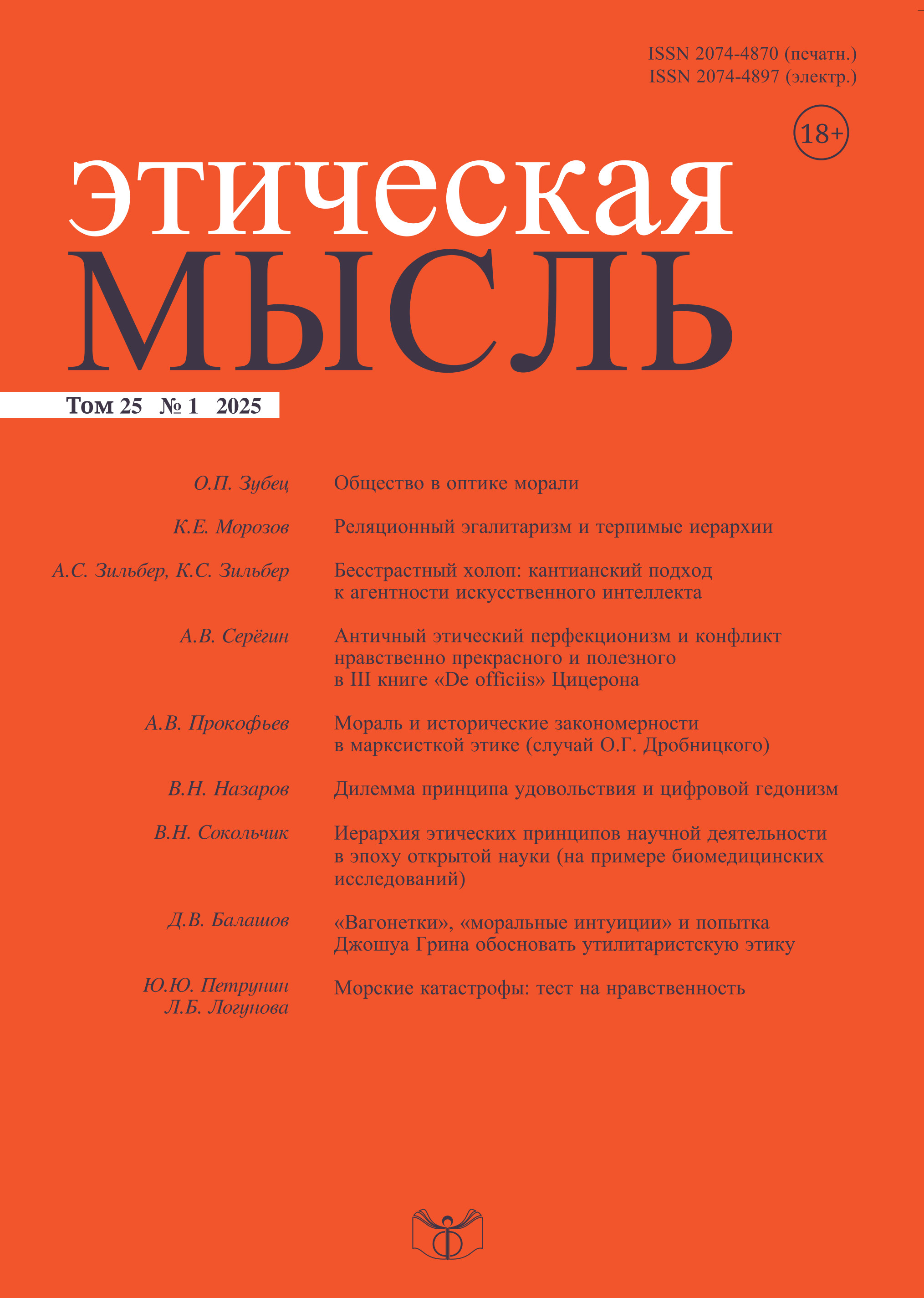Maritime Disasters: A Moral Test
DOI:
https://doi.org/10.21146/2074-4870-2025-25-1-139-152Keywords:
maritime disasters, public morality, applied ethics, ethical experiments, deontology, statistics, artificial neural networks, transdisciplinary methodologyAbstract
The state of public morality is one of the most difficult problems in ethical research due to the elusiveness of the effectiveness of the moral component in the real-life action/behavior of a particular person and, as a result, the lack of reliable empirical data for generalizing conclusions. In order to obtain empirical data, the article examines maritime disasters, which are considered as a “real experiment” (Quasi-Natural Experiment), the results of which are available for scientific analysis of the effectiveness of moral norms. Unlike thought experiments (“trolley”), actively discussed in the professional community, in a maritime disaster situation, ordinary people were forced to make a real-life choice (“lifeboat”). In the specific situations analyzed, data on survivors and the dead can be considered as empirical facts for an ethical test of morality. Empirical data on the behavior of passengers and crew members of a sinking ship are analyzed using the methods of applied statistics and artificial intelligence (artificial neural networks), and tested for the effectiveness of the deontological maxim “the strong should help the weak (the needy)” in a situation of real-life choice. The “Strong” and “Weak” are divided according to their chances of survival, which are determined by the predictors introduced into the study. The article reveals the connections between the intensity of morality manifestation and socio-economic and technological variables Gender, Age, Cabin Class, Nationality (citizenship), Time of ship sinking, Status on the ship (crew or passenger). The obtained results of the study allow us to evaluate the reliability of three hypotheses about the state of morality in four analyzed episodes of maritime disasters and the possibility of applying transdisciplinary methodology in ethics.









